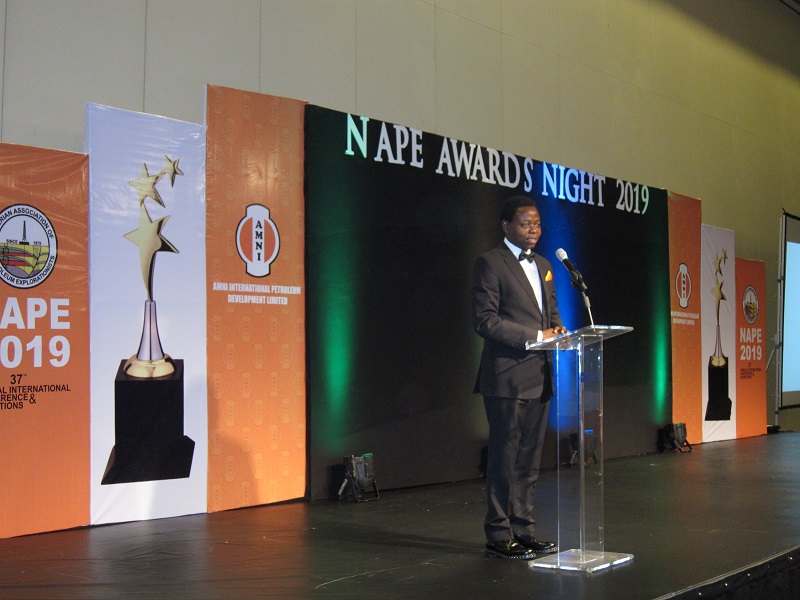Mr. Olawale Olafisan, Group Managing Director AMNI
-By Olufunke Afolami
After oil was discovered in 1956 at Oloibiri in Bayelsa state, the oil industry has been the prerogative of the International Oil Companies (IOCs) operating in Nigeria. They dictate the pace of the country’s oil industry for decades.
However, sprawling of indigenous participation started when government conceived the idea of marginal field programme in 2003 which was followed by promulgation of Local Content Act in 2010. This gave opportunity for indigenous operators to display their knowledge in the oil industry.
One indigenous oil company that has succeeded and started from Nigeria to other parts of the globe is AMNI International Petroleum Development Company Limited.
The Group Managing Director of AMNI, Olawale Olafisan gave a brief remark of the company at the Nigeria Association of Petroleum Explorationist (NAPE) event that it sponsored.
He revealed that the company operates Oil Mining Lease (OML) 112 to 117 and a Joint Venture (JV) asset OML 52. It is also operating in West African space offshore centre Pano bloc in Ghana.
AMNI operates in the electricity space and owns substantial interest in Kanji and Jebba Dam contributing 1/3rd of Nigeria’s energy as a Generating Company (GenCo). Indeed, it operates in all the energy value chain. Presently, the company is considering oil operation activities in Angola, Tanzania and Romania.
AMNI has a Floating Production Storage and Offloading (FPSO) and FSO, it operates two oil terminals that are offshore.
The indigenous company has good relationship with its host communities in Niger Delta with an enhanced Corporate Social Responsibility (CSR) to its credit. Through its CSR the company has reached out to host communities within its operational jurisdiction including other areas.
In the NAPE event the Director of the Department of Petroleum Resources (DPR), Engr. Sarki Auwalu was a guest and he spoke extensively on the marginal field bid round.
In his words, Olafisan said, “our industry is resilient, our business is resilient and I believe strongly that in this new world where we are finding new ways to connect without borders, we have colliding global crisis.”
Concerning the bid round, the AMNI GMD was of the view that most people will ask why now? But if not now when? “The question comes to mind that we are redefining the industry, the Nigerian oil space and dovetail into West African oil space.”
According to Olafisan, there are fundamental questions to be asked because of what happened in the past. Thus, “am happy that the Director has turned those issues apart and has explained to the general public.”
In the bid round exercise, Nigeria will get a fresh perspective. He urged Nigerians “not to let the train leave them because from what the Director said I could take away that the train will leave the bus stop very soon and everyone is asked to participate.”
Although, there are risks but these risks are underpinned by reward. “Our business is high risk and high reward to produce crude oil and refined. I believe strongly that we can build and managed the bid round as Nigerians.”
He said Engr. Auwalu has revealed about 600 oil companies bidding for 57 fields which requires rationalization of portfolio and strategic partnership.
Olafisan was perturbed how DPR or Nigerian government will assist in managing strategic partnership because partnership in oil and gas among Nigerian companies have not worked and that has delayed bringing resources and monitising them.
The AMNI GMD expressed optimism that Engr. Auwalu will live up to expectation, “the man at the helms of affairs is qualified to be there I think he knows his onions. It is a 360-degree action plan from what he has said to conduct the bid round in order to assist in synergizing.”
The AMNI boss cautioned that DPR should not attempt to get into commerciality of how companies worked together. “I have heard him saying DPR wants to manage Crude Handling Charges (CHC). CHC is very complex and it is dynamic. There are companies that are willing to help their Nigerian counterparts and we are one of them.” For instance, there are companies that had done CHC with AMNI and they are owing the company millions of dollars. AMNI has not been able to get its money back from these debtors. So, “when we get into nitty-gritty of how companies interact and do business, as a regulator, it becomes messier.”
Olafisan appraised Engr. Auwalu for breaching the gap between regulation and business in the industry adding that AMNI is also bidding for a marginal field, whatever the outcome is, it would accept because the process will be transparent.
Nigerians can only benefit in a win-win situation, the steps are clear. “If we are very serious people, we should follow them to the end and I believe strongly that it will benefit Nigerians and the government at the end of the day.”


Comment here